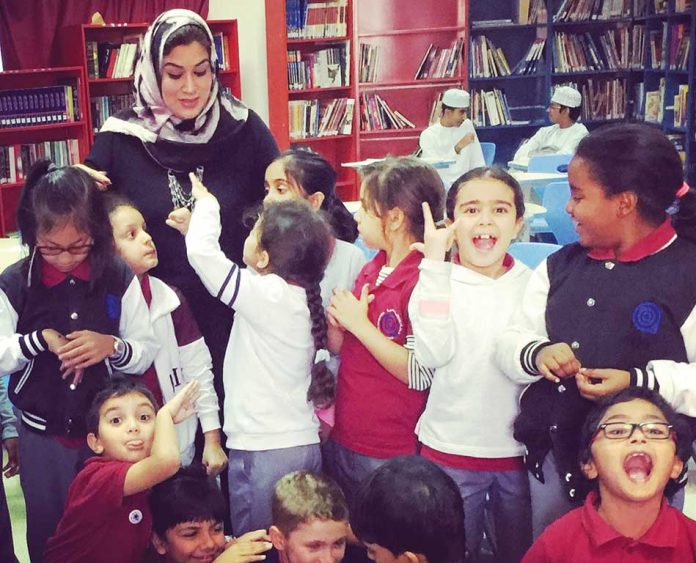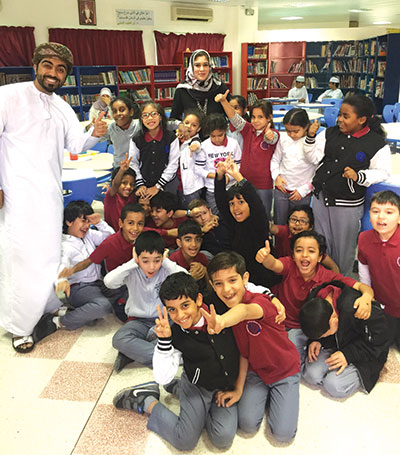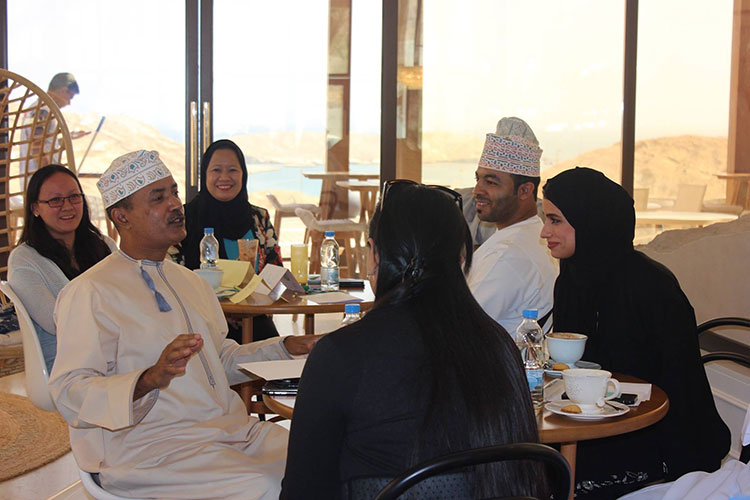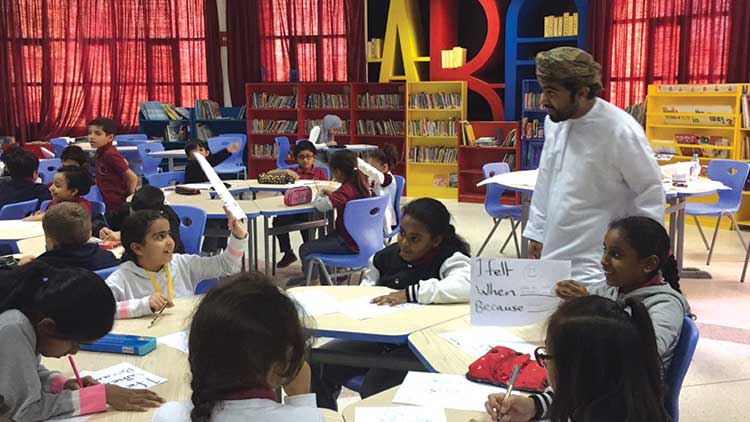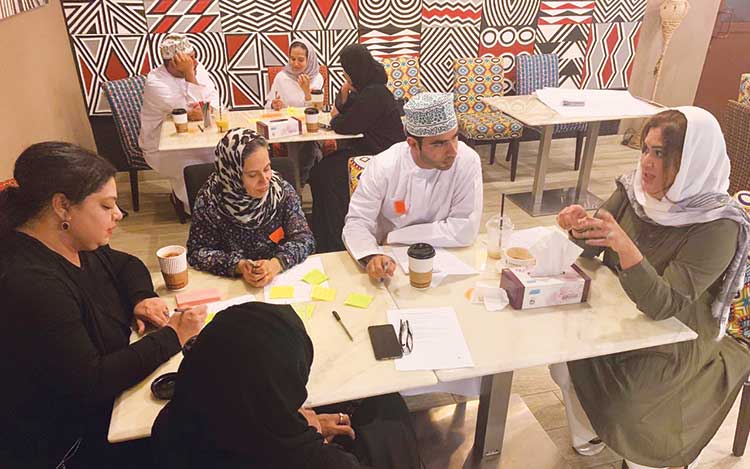EQ or emotional quotient, which is used interchangeably to mean emotional intelligence, is the key behind the focused quarterly sessions organised in a café setup as part of the programmes under ‘Six Seconds’, a California based non-profit organisation dedicated to the awareness of ‘Emotional Intelligence’. The first three quarters of the year saw the local outfit ‘EQ Café’, under the helm of Dr. Yasmeen Al Balushi, Six Seconds Country Leader for EQ, deliberating on the themes of Motivation, Anxiety and Innovation; the last one of this year will focus on ‘Connection’.
Six Seconds is The Emotional Intelligence Network, a community of change-makers working toward one billion people practicing the skills of emotional intelligence. Volunteer Network Leaders organise free ‘EQ Café’ and other programmes around the world to build local communities of people practicing emotional intelligence together.
Dean of Muscat College, Dr. Yasmeen is a certified EQ trainer and assessor by Six Seconds, USA. In the following article, she highlights the importance of inculcating emotional intelligence and the way forward through EQ Café.
What is EQ?
Emotional intelligence means being smarter with feelings. It is a learnable, measurable, scientifically validated skill set that fuels better effectiveness, relationships, wellbeing and quality of life — for adults & children.
Six Seconds research and share scientific, global, transformational tools and
methods to support the data on EQ. With
offices and representatives in 25 countries and members in 167 countries, the
Six Seconds community extends the globe.
While it’s easy to start practicing EQ, it’s more powerful and fun working together. So, after becoming certified in Six Seconds’ methods and tools, volunteers apply to become Network Leaders to host informal ‘EQ Cafes’. These free gatherings are a way to build a local community of practice, sharing the power of emotional intelligence.
What are the Cafés About?
The EQ Cafés are 90-minute sessions with dialogue, fun, and meaningful interaction to experience what happens when we practice EQ. They are not lectures or classes — because we believe the best learning comes from the inside. From learning to change to stress to wellbeing… the themes focus on how emotional intelligence can improve our daily lives in every sector. Each calendar quarter we develop a new theme, publish the Café, and Network Leaders join online meetings to prepare. Then these amazing volunteers share the power of EQ in over 80 cities around the world. Each quarter, all around the world, members of this community are virtually collaborating on the theme. We usually have four EQ Cafes’ each year.
What is the role of cafes in these ventures?
To conduct the EQ Café’s, the Network Leader contacts a coffee shop or a learning centre for a space to conduct the EQ Café’. In my case, I look for cafes’ owned by young Omani entrepreneurs. The EQ Café is free of charge for the participants; however, we usually request participants to buy at least a drink from the place. Some Cafés charge a minimal amount for a particular hall for the session and Bastah Majan is one of those cafés with a dedicated area. In the past, we have utilised Cake Gallery and Africa Coffee house; some sessions were also conducted in institutions (depending on the theme). We have conducted one session at CBFS in 2017, as the theme targeted young adults and focused on learning, and one in Azzan Bin Qais School, as we needed 3-7 years old children in that particular EQ Café’.
Who leads the Cafés?
Through our emotional intelligence certification training programmes, we share these best practices so people can more effectively use and develop EQ. Graduates can apply to become Network Leaders. Most are also sharing EQ in their professional work as facilitators, coaches, consultants, teachers and trainers.
How can EQ help create a sustainable ‘Fourth Industrial Revolution’, which represents a fundamental change in the way we live, work and relate to one another?
Leaders in every sector – from business to education to government – have to re-examine the way they do business. They need to understand their changing environment, challenge the assumptions and patterns they follow on autopilot, and relentlessly and continuously innovate.
But that is easier said than done.
Anxiety is on the rise all over the world. And the cruel irony is that those feelings of anxiety and hopelessness often block the exact type of innovative thinking that’s needed to thrive in this type of environment. Innovation requires a range of emotional intelligence skills – like empathy, optimism and critical thinking. These EQ skills fuel the process of innovation – imagining new possibilities, working collaboratively with others, adjusting to new realities and staying open to new ideas, as well as navigating the fear and anxiety that has come to define this era of change. This is why the World Economic Forum Future of Jobs Report lists emotional intelligence as one of the most important skills for the workforce of the 21st century – in a rapidly changing world, EQ is indispensable.
Our theme for 2019 Q3 is innovation – that rare human capacity to see a possibility that did not exist, and to bring it to life. Since emotions are a catalyst to focus our attention, and a way of helping us notice what’s important, emotions could be an invaluable ‘spark’ to fuel innovation. At the same time, emotions can push us into a closed posture of defensiveness and protecting of ‘the old way’. Given the growing complexities in our world, how might we ensure we’re making innovations that serve the greatest good, not just capitalising on opportunity for short-term gain?
Meanwhile, governments and many organizations (including Six Seconds) are focused on innovation toward an essential purpose: Achieving the Sustainable Development Goals (SDGs). To achieve the SGDs, we will need to innovate ourselves. We’ll need to find new ways to engage with one another and the world.
